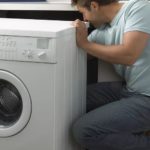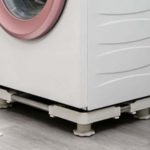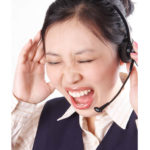Having your washing machine shake and vibrate while doing laundry may seem normal, but it’s actually an issue that should not be ignored. If there is excessive shaking and loud noises, it can damage internal components and reduce the lifespan of the washing machine.
Causes of washing machine shaking
Here are the causes of shaking and how to fix them:
Uneven placement of the washing machine
If the washing machine is placed on an uneven surface, the tub will be prone to tilting and the agitator may collide with the machine’s shell during operation, causing loud noises.
How to fix:
Check the surface where the washing machine is placed. If it’s uneven, you can move the machine to a different spot or adjust the machine’s feet for balance. You can also reinforce the placement by using a hard wooden board or pouring concrete to ensure a stable surface that won’t affect the machine’s operation.

Causes of washing machine shaking
Uneven load or overloaded drum
Overloading the drum with too much laundry will affect the cleaning efficiency and the durability of the garments.
In addition, not sorting the clothes properly and uneven distribution within the drum can cause clothes to tangle, resulting in imbalance and tilting of the drum during washing. This will cause the washing machine to shake heavily and make loud noises.
How to fix:
Sort and check the weight of the laundry before starting the wash to ensure the right fabric materials and minimize tangling after washing.
If you notice loud noises and excessive shaking, you can pause the washing program to adjust the laundry inside the drum.
Incorrect installation
For front-loading washing machines, incorrect installation or failure to remove the transit bolts during installation can also cause strong shaking and loud noises.
How to fix:
Read the product manual carefully or seek assistance from technical staff to ensure proper installation of the washing machine. Check and remove the transit bolts before using the machine.
Broken shock absorbers
Shock absorbers in washing machines are responsible for absorbing vibrations generated by the drum, reducing vibrations and preventing shaking. Therefore, when these shock absorbers are broken, the washing machine loses balance, leading to collisions and loud noises at high speeds.
How to fix:
Contact the service center for a technician to inspect, repair, or replace the broken shock absorbers.
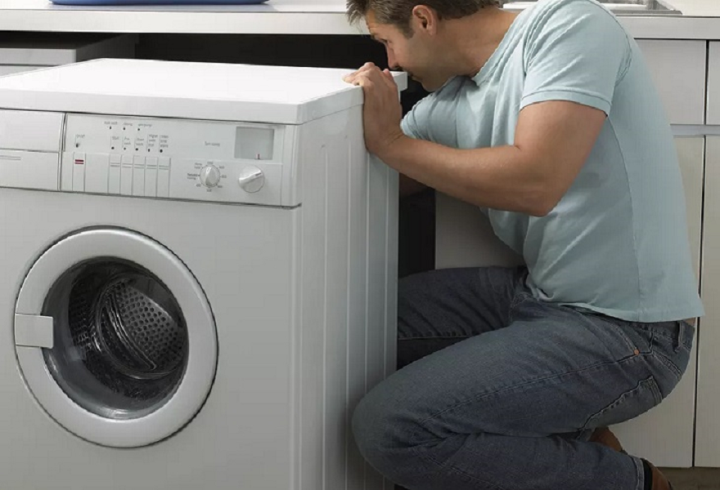
How to fix a shaking and noisy washing machine
Broken drive belt and bearings
The drive belt and bearings play important roles in washing machines, supporting smooth movements and rotations, reducing friction, and efficiently bearing the load. When these parts are broken, the washing machine will produce loud noises and intense shaking.
How to fix:
To check and replace these parts, you need to have knowledge of electrical appliances. It’s best to contact a technician from the service center to provide assistance as soon as possible.
Inadequate water supply
Inadequate water supply to the washing machine can be caused by low water pressure or water-saving habits, where users manually choose a lower water level than the amount of laundry being washed. This disrupts the washing cycle (as there isn’t enough water to create friction between clothes and the drum).
Therefore, the washing machine will produce loud noises during the washing and rinsing processes.
How to fix:
Allow the washing machine to automatically detect the appropriate water level based on the weight of the laundry in the drum. Regularly check the water source’s quality and clean the water supply hoses and washing machine to prevent clogging and dirt from affecting its performance.
Faulty or old washing machine
Old or faulty washing machines can also cause strong shaking, loud noises, and various other signs of malfunction.
How to fix:
Regularly inspect and maintain the washing machine, ideally every 3-6 months, to promptly detect any abnormalities. This can help save on repair costs compared to more severe damages.
If the appliance has been used for too long, you should consider replacing it with a new washing machine (maximum usage of 8 years).
Foreign objects left in the drum
Leaving foreign objects inside the drum can cause collisions with the drum during operation, resulting in noise.
Sharp or metallic objects can scratch and damage the drum, affecting the durability of clothes after washing.
How to fix:
Check the drum and laundry bags to ensure that no foreign objects such as keys, pens, stones, or metal clips are left before starting the washing machine.
According to VTC News
Noisy Washing Machine’>How to Fix a Vibrating and Noisy Washing Machine
If you are experiencing strong vibrations and loud noises coming from your washing machine during its operation, it is important to investigate the source of the issue in order to ensure that it does not worsen. As the drum of the machine rotates at a fast speed to effectively eliminate dirt from clothes, anything out of the ordinary could impede the machine’s ability to function optimally.
shaking-and-vibrating-issues/’ title=’Investigating Ways to Resolve Washing Machine Shaking and Vibrating Issues’>Investigating Ways to Resolve Washing Machine Shaking and Vibrating Issues
Noisy and Vibrating Washing Machine: The Common Mistake 90% of Housewives Make
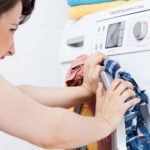 Vibrating Washing Machine: The Common Mistake 90% of Housewives Make’>
Vibrating Washing Machine: The Common Mistake 90% of Housewives Make’>Many people make the biggest mistake of overloading their washing machines with too many items, causing an imbalance during the wash cycle and resulting in strong vibrations.


























